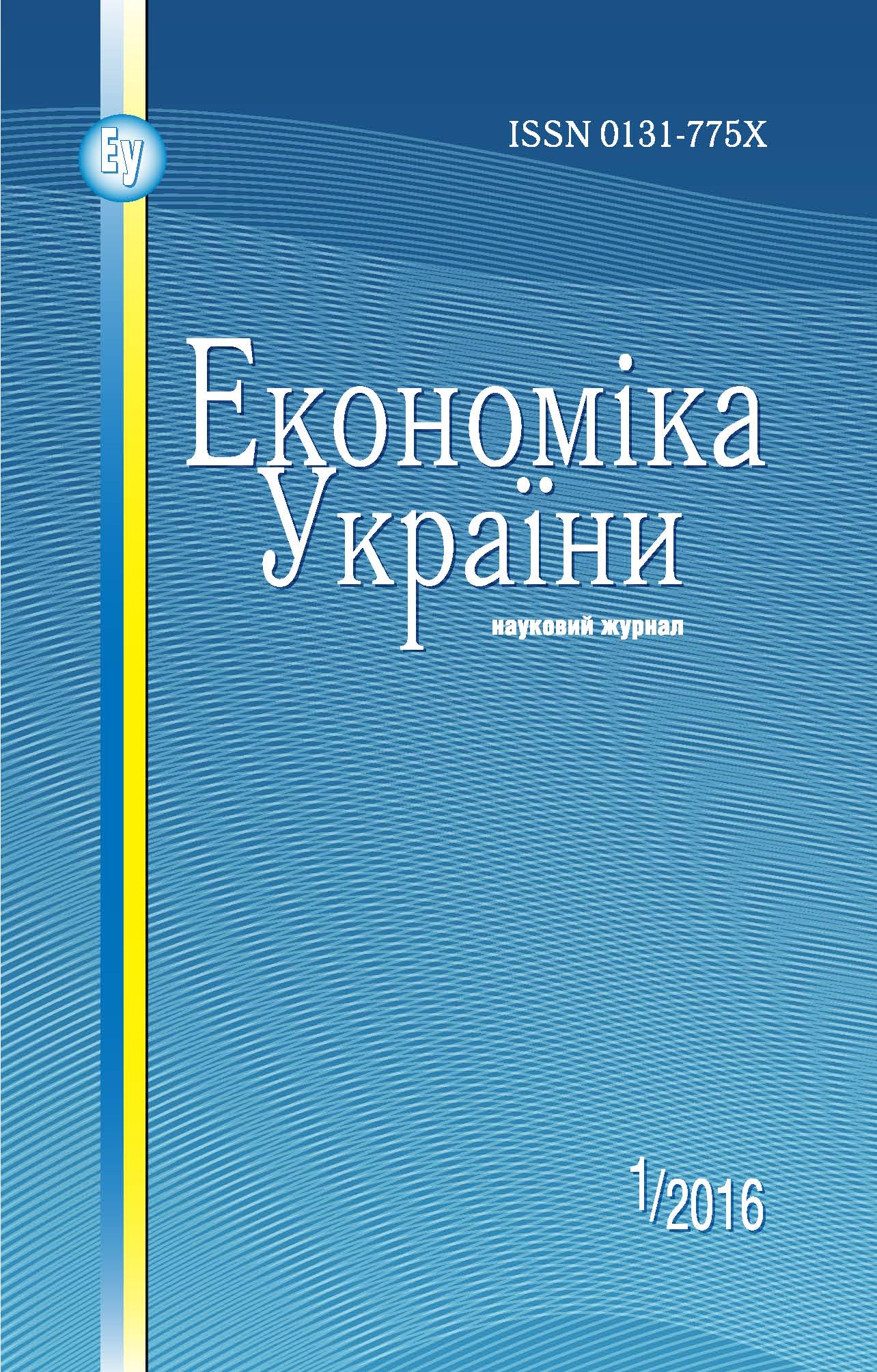ESSENCE AND CONCEPTUAL BASES OF THE FORMATION OF A TAX POLICY UNDER CONDITIONS OF THE EUROINTEGRATION PROCESSES
Keywords:
state’s tax policy, tax policy of the integrational structure EU, tax policy conception, tax reform, tax coordination, tax harmonization, tax competition, taxation convergenceAbstract
The formation of state’s tax policy is a complex multiaspect task. The success of its implementation depends on a number of economic, social, and institutional factors, which should be considered in the context of the defense of national interests under conditions of the globalization and integration processes, by realizing the possibilities of subjects of a market concerning the payment of taxes and tax settlements, as well as by using efficiently the regulating potential of the national taxation. It is substantiated that the institutional criteria for the formation of state’s tax policy must be: compromise; complementarity of tax changes; rejection of radical tax initiatives; stability, and flexibility. In the post-socialism countries, the tax policy must be formed with regard for the transient realities, the functioning of a significant shadow sector, and problems of enhancement of the efficiency of redistributing processes.
EU does not form the income base of its participants. But its tax policy is very complicated and has many aspects, since it foresees the balancing of frequently contradictory national interests for the attainment of promising purposes and the execution of current tasks of the functioning and development. The tax policy of EU is realized by means of the tax harmonization (it foresees the formation of a common legislative base on the questions of taxation under the agreement of all participants of the integration) and other forms of the tax coordination (introduction of other tax measures obligatory for the implementation, and provision of recommendations to favor certain changes in the national tools of taxation) to avoid an unfair tax competition and to support of a desired motion in the taxation convergence direction.
It is proved that the formation of Ukraine’s tax policy should occur on the basis of the introduction of changes in the Tax code according to the EU – Ukraine Association Agreement (as for VAT and specific excise taxes), gradual implementation of other obligatory measures of the tax policy of EU, recommendations of the Eurocommission and tax mechanisms of the countries of EU with changes in the economic development and the deshadowing of economic relations, and the support of a reliable financial basis of state’s functioning simultaneously with the creation of conditions for a growth of the GDP.
References
Parygina V.A., Brown C., Musgrave J., Tedeev A.A. Nalogi i Nalogoobnozhenie v Rossii [Taxes and Taxation in Russia]. Moscow, Eksmo, 2006 [in Russian].
Panskov V.G., Knyazev V.G. Nalogi i Nalogoobnozhenie [Taxes and Taxation]. Moscow, ICFED, 2003 [in Russian].
Nalogi i Nalogooblozhenie, pod red. D.G. Chernika, L.P. Pavlovoi [Taxes and Taxation], edited by D.G. Chernik, L.P. Pavlova. Moscow, Infra-M, 2001 [in Russian].
Maiburov I.A. Teoriya i Istoriya Nalogoobnozheniya [Theory and History of Taxation]. Moscow, Yuniti-Dana, 2007 [in Russian].
Sokolovs’ka A.M. Formuvannya podatkovoi polityky v umovakh nevyznachenosti [Formation of the tax policy under the conditions of uncertainty]. Finansy Ukrainy – Ukraine’s Finances, 2012, No. 11, pp. 44–51 [in Ukrainian].
Zakharov A.S. Stanovlenie sistemy nalogovogo prava ES, avtoref. … kand. yurid. nauk [Establishment of the tax right system in EU], Author’s abstract of the Cand. degree thesis (Jurid. Sci.). Moscow, MSIIR MFA Russia, 2010 [in Russian].
Efymenko T.I. Aktual’ni pytannya suchasnykh strategii reformuvannya podatkovykh system [Actual questions of modern strategies of reformation of tax systems]. Finansy Ukrainy – Ukraine’s Finances, 2013, No. 3, pp. 7–26 [in Ukrainian].
Krysovatyi A.I. Teoretyko-Organizatsiini Dominanty ta Praktyka Realizatsii Podatkovoi Polityky v Ukraini [Organizational-Theoretic Dominants and the Practice of Realization of the Tax Policy in Ukraine]. Ternopil’, Kart-Blansh, 2005 [in Ukrainian].
Mikhailishina Ya.A. Sushchnost’ nalogovogo reformirovaniya [Essence of a tax reformation]. Nalogi i Nalogoobl. – Taxes and Taxat., 2013, No. 3, pp. 217–227 [in Russian].
Krysovatyi A.I., Mel’nyk V.M., Koshchuk T.V. Podatkovi Transformatsii v ES ta Podatkova Polityka Ukrainy v Konteksti Evrointegratsii, za red. A.I. Krysovatogo [Tax Transformations in EU and Ukraine’s Tax Policy in the Context of the Eurointegration], edited by A.I. Krysovatyi. Ternopil’, TNEU, 2014 [in Ukrainian].
Mel’nyk V.M. Opodatkuvannya: Naukova Obgruntuvannya ta Organizatsiya Protsesu [Taxation: Scientific Substantiation and Organization of the Process]. Kyiv, Komp’yuterpres, 2006 [in Ukrainian].
Schneider F., Buehn A., Montenegro C.E. New estimates for the shadow economies all over the world. Intern. Econ. J., 2010, No. 24, available at: www.econ.jku.at/members/Schneider/files/publications/2011/IEJ_NewEstimates_ShadEc_World.pdf.
Ivanov Yu.B. Tendentsii mirovoi nalogovoi politiki v kontekste antikrizisnogo regulirovaniya, v: Nalogovye Reformy. Teoriya i Praktika, pod red. I.A. Maiburova, Yu.B. Ivanova [Tendencies of the world tax policy in the context of the anticrisis regulation, in: Tax Reforms. Theory and Practice], edited by I.A. Maiburov, Yu.B. Ivanov. Moscow, Yuniti-Dana, 2010, pp. 381–395 [in Russian].
Pogorletskii A.I. Nalogovye aspekty rasshireniya Evropeiskogo Soyuza [Tax aspects of the extension of the European Union]. Vestn. Sankt-Peterb. Univ. – Bull. St.-Petersb. Univ., 2005, Ser. 5, No. 1, pp. 30–39 [in Russian].
Downloads
Published
How to Cite
Issue
Section
License
Copyright (c) 2024 Economy of Ukraine

This work is licensed under a Creative Commons Attribution-NonCommercial-NoDerivatives 4.0 International License.



